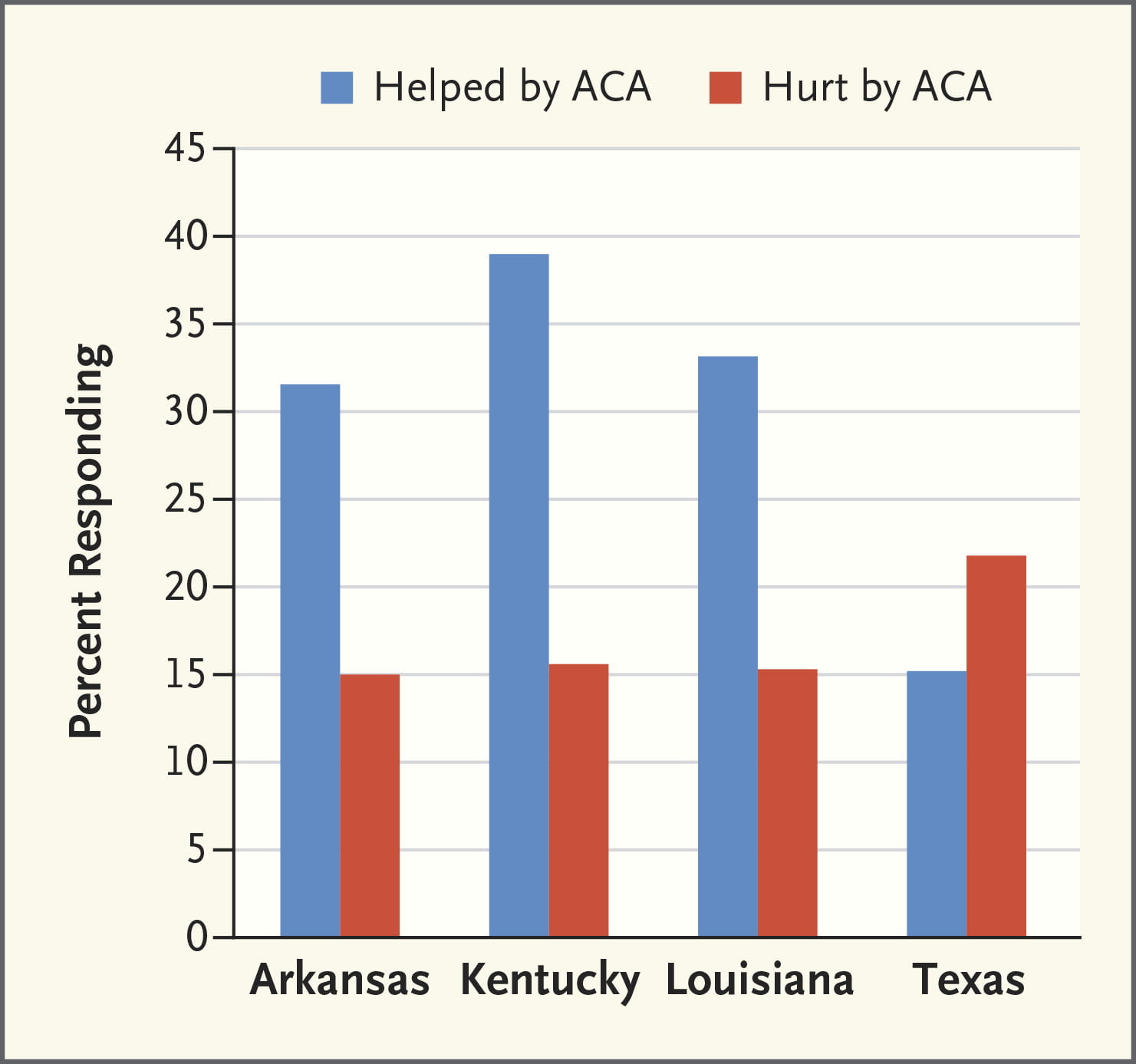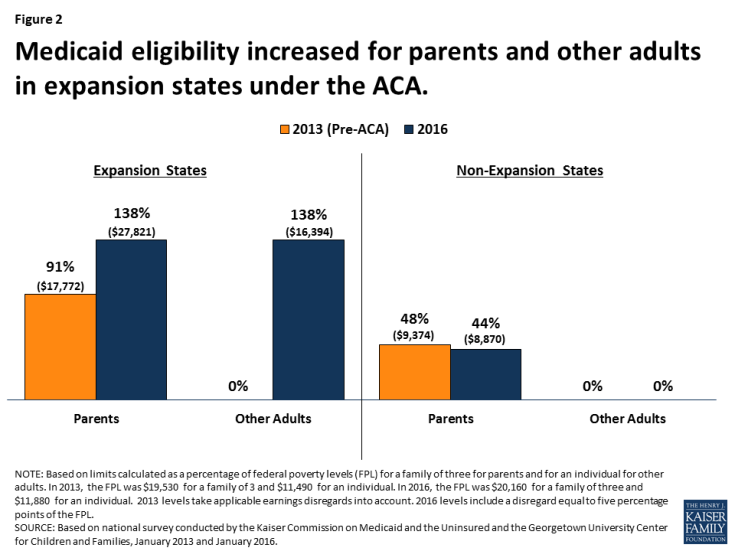Full Repeal of Affordable Care Act, Without Replacement, Would Cause Many to Lose Coverage
MuniNet focuses on cities and states, and typically does not cover Federal policy issues. However, the planned repeal of the Affordable Care Act has significant potential consequences for State governments. Much of what exactly will happen is unknowable at this point. Will ACA be repealed without replacement? This is unlikely, as recent polling shows such action would prove very unpopular. The Kaiser Family Foundation’s poll from early January showed that, although repeal was slightly favored over no repeal 49%/47%, only 20% favored repealing without a replacement plan already figured out. A Quinnipiac poll released just last week showed that 67% supported a full repeal (16%) or partial repeal (51%) of the ACA, but that only 13% support repealing without a replacement. MuniNet does not pass judgment on whether repealing the ACA is a good idea, whether it is a good idea to repeal without a replacement, or on the ACA one way or the other. However, it is worth analyzing where the public stands on the issue, as public opinion has strong influence on whatever policy decisions get made.
We can analyze the efficacy of a replacement policy once one has been developed. Until then, the public can only look at what the impact would be if the ACA were repealed without a replacement. Focusing on cities and states, we put special emphasis on the impacts of repealing the Medicaid Expansion portion of the Affordable Care Act. Medicaid is a government healthcare program jointly run by both the Federal and state governments to provide health coverage for low-income people. Medicaid is projected by the Congressional Budget Office to result in $389 billion in Federal spending for fiscal year 2017, making it the fourth-largest Federal program in dollar terms, behind Social Security, the Department of Defense, and Medicare.
Medicaid was expanded under the ACA. The Affordable Care Act allowed for Medicaid eligibility for families and individuals to expand up to incomes of 138% of the poverty line, and all adults below this income threshold are at least eligible for Medicaid coverage in states that opted into the expansion. Prior to the ACA, states that opted in had median eligibility requirements of 91% of the Federal poverty limit, and to this day, in states that opted out of the Medicaid expansion, eligibility remains a median below half that of the Federal poverty limit. The Kaiser Family Foundation released a report in January spelling out just how coverage and financing under the Medicaid expansion of the Affordable Care Act would be effected with a full repeal. Among their findings:
- In 2015, an estimated 11 million enrollees were adults made newly eligible by the expansion who could be at risk for losing Medicaid coverage.
- As a result of the enhanced federal funding for expansion, expansion states have received $79 billion in Federal funding from January 2014 through June 2015.
- Studies show states that opted into the Medicaid expansion have experienced broader economic gains, like budget savings, increased employment, savings in other states programs, such as state-funded behavioral health or corrections, and increased hospital revenues.
This last bullet point about the negative impacts on hospitals is also highlighted in a study released by the American Hospital Association in December 2016. This study uses H.R. 3762, a bill that includes a repeal of the Affordable Care Act without a replacement, as a template. If such a bill were made law, it would result in a net negative net impact on hospitals of $165.8 billion from 2018-2026.

Source: “Red-State Medicaid Expansions — Achilles’ Heel of ACA Repeal?” – New England Journal of Medicine, January 25, 2017
A very interesting academic work published in January in the New England Journal of Medicine shows how important a role the Medicaid expansion has played in the perceptions of the Affordable Care Acts’ success. Benjamin D. Sommers, M.D., Ph.D., and Arnold M. Epstein, M.D., conducted a series of phone polls and, through statistical analysis, isolated that the “strongest predictors of positive attitudes toward the law were whether a respondent lived in an expansion state and whether that person had Medicaid or ACA marketplace coverage (as opposed to being uninsured).” The chart below shows the divide in perceptions of how respondents’ lives were affected by the ACA in three states that opted in to the Medicaid expansion, Arkansas, Kentucky, and Louisiana, and one, Texas, that did not. The researchers opted to study states that did not go for Barack Obama in either of his presidential runs, to reduce the impact of bias in favor of the law due to political support rather than policy impact.
In short, a full repeal of the Affordable Care Act that includes eliminating the Medicaid expansion, will likely result in healthcare losses for millions of Americans, and remove a program that appears to be popular with those who utilize it. It could also cause economic hardship for state governments and hospital systems. This is one part of health policy that should be treated with extreme care.
by Jeffrey L Garceau

